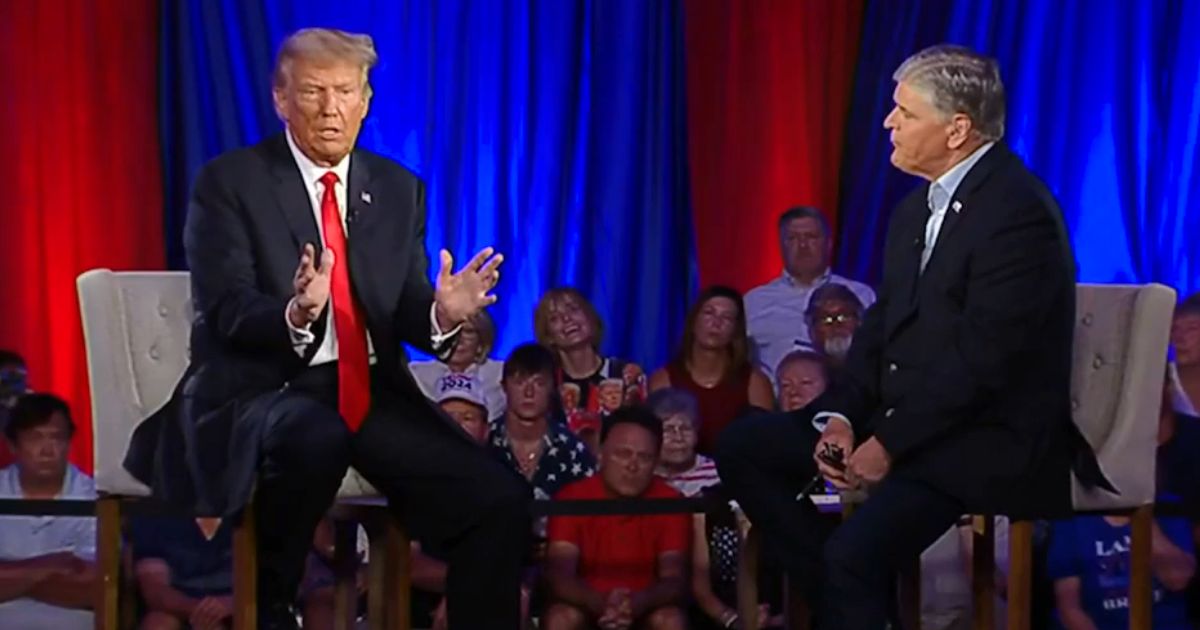Former President Donald Trump indicated that he kept Russian President Vladimir Putin from invading Ukraine during his tenure through the use of a threatening pledge to the dictatorial leader.
Trump made the claim in a town hall event with Sean Hannity of Fox News on Thursday.
The event took place in Clive, Iowa.
Trump insinuated that he told Putin he’d strike Moscow with military force if the Russian leader proceeded with an invasion.
“I said, ‘You’re not going to do it. And if you do it, we’re going to have problems like you’ve never had before.'”
Trump said Putin tried to call a bluff.
“He said, ‘You don’t mean that!’ I said, ‘I mean it 100 percent.’”
Hannity asked Trump to clarify.
“You’re implying something here … You basically said, ‘I’d obliterate you’? Is that what you said?” the host asked as a follow-up.
Trump responded with discretion.
“I said things that were very bad, very nasty,” the former president said.
After some uproarious applause, Trump added that his remarks involved Russia’s capital.
“It had to do with Moscow,” he said.
The former president and leading GOP contender in 2024 has recounted a story of threatening Putin with American military force to deter Russian aggression before.
Trump told a golfing friend that he threatened Putin with a military strike on Moscow shortly after Putin launched a full-fledged invasion of Ukraine last year, according to Yahoo.
He suggested the threatening remark, while dramatic in scope, was enough to make Putin think twice about military belligerence against his neighbors.
“He didn’t totally believe me but he believed me 10 percent, and that’s all he had to do,” Trump said.
The former president also noted that similar rhetoric proved effective in dissuading China and its president from being overly aggressive with Taiwan.
“I had the same conversation with President Xi [Jinping] about Taiwan,” Trump said. “I said, ‘President, don’t do it with Taiwan. Don’t even think about doing it with Taiwan.’
“He was never going to do it, and now he’s circling, circling, [and] ships are circling.”
This article appeared originally on The Western Journal.
























